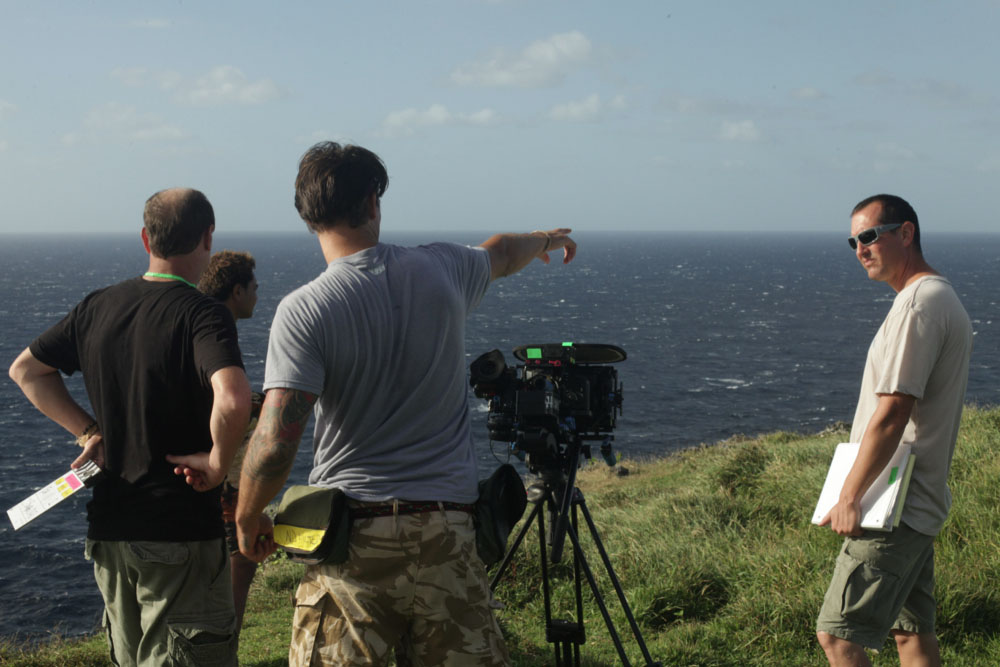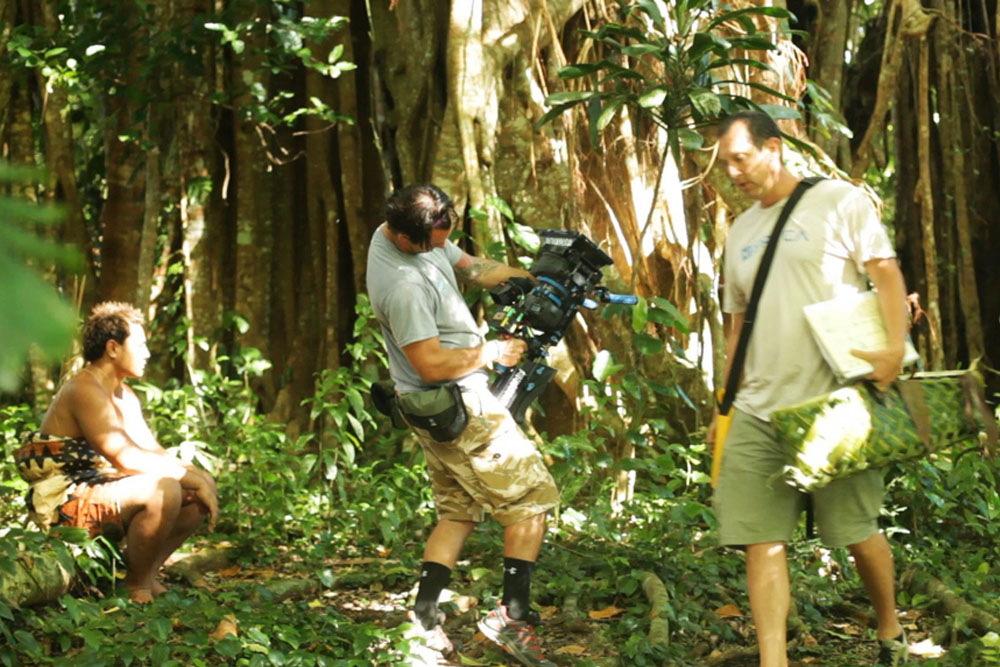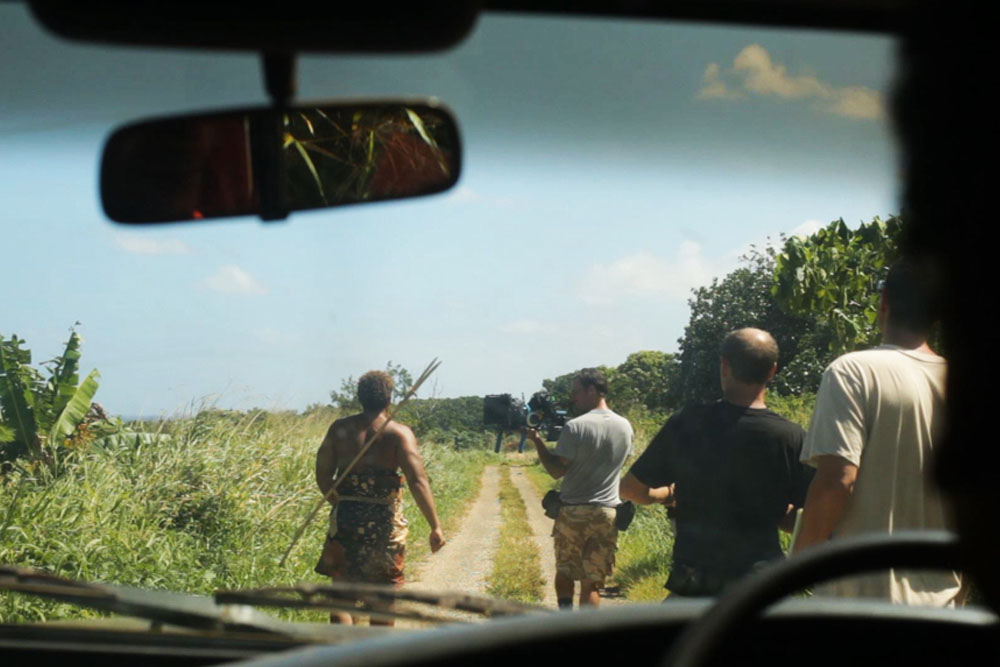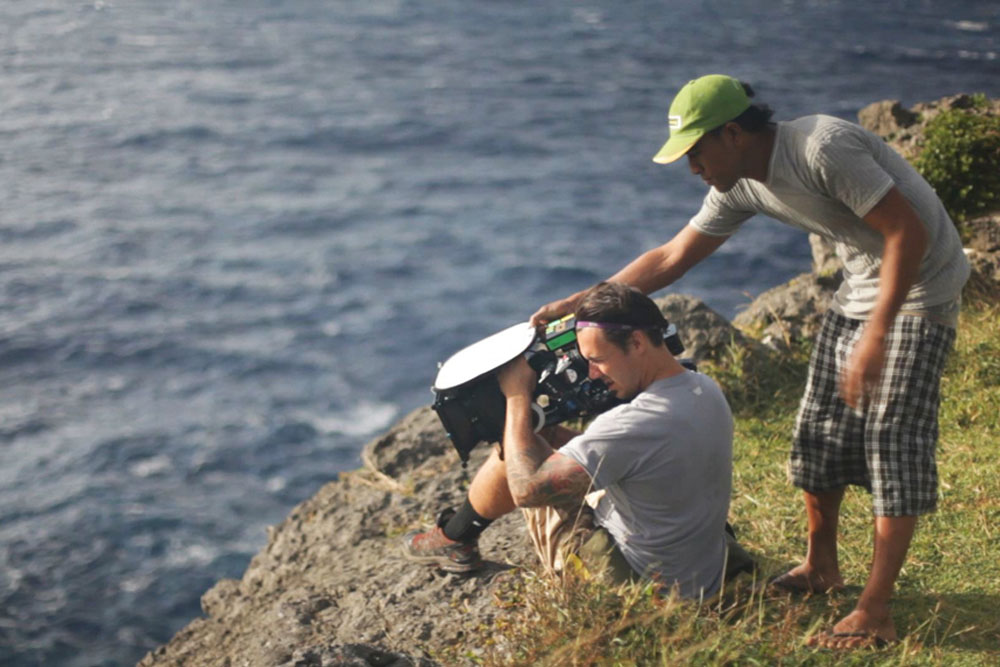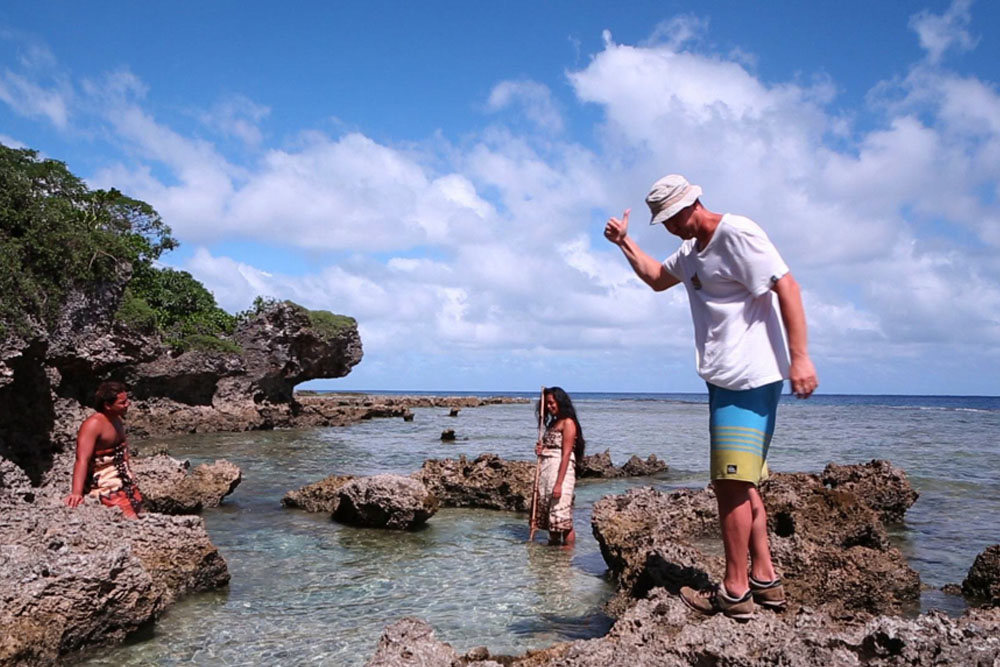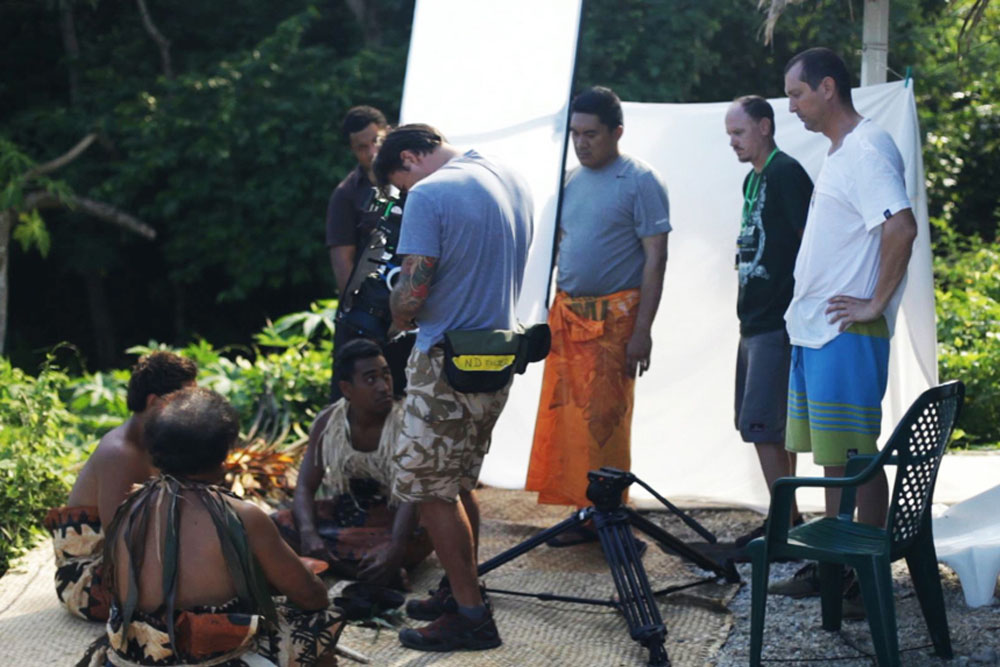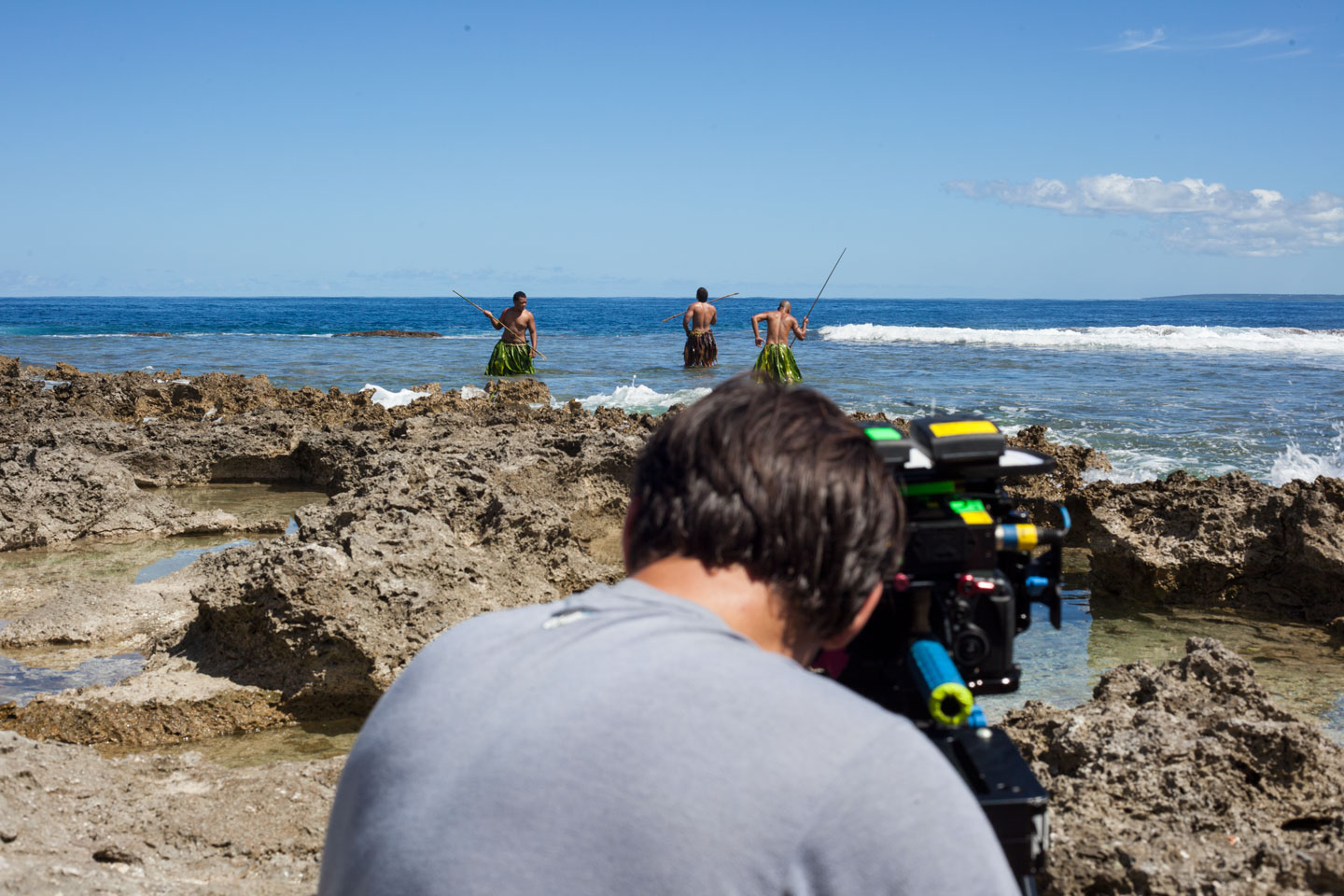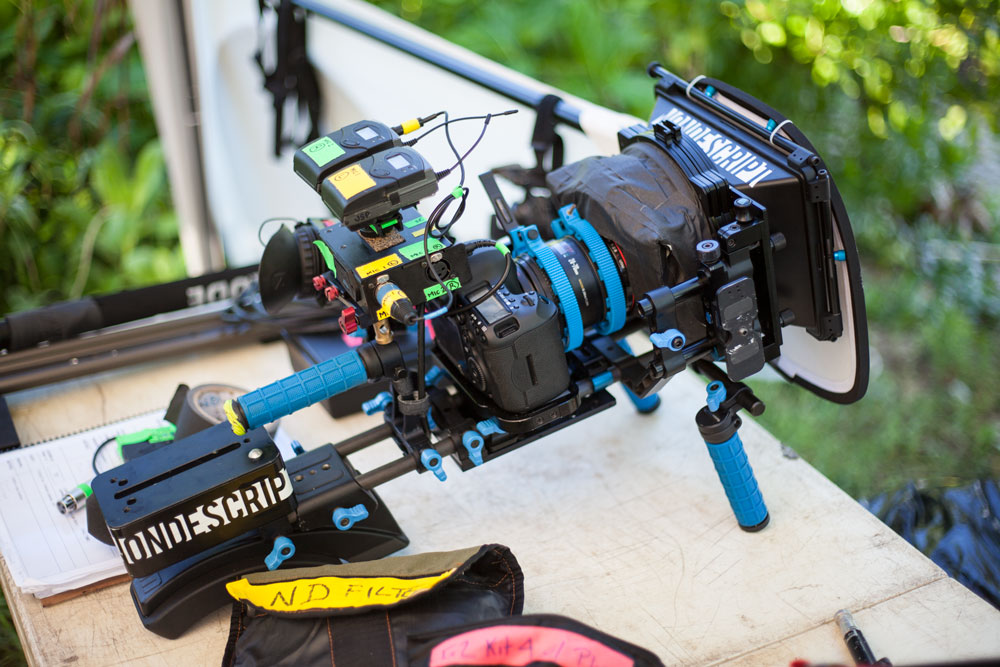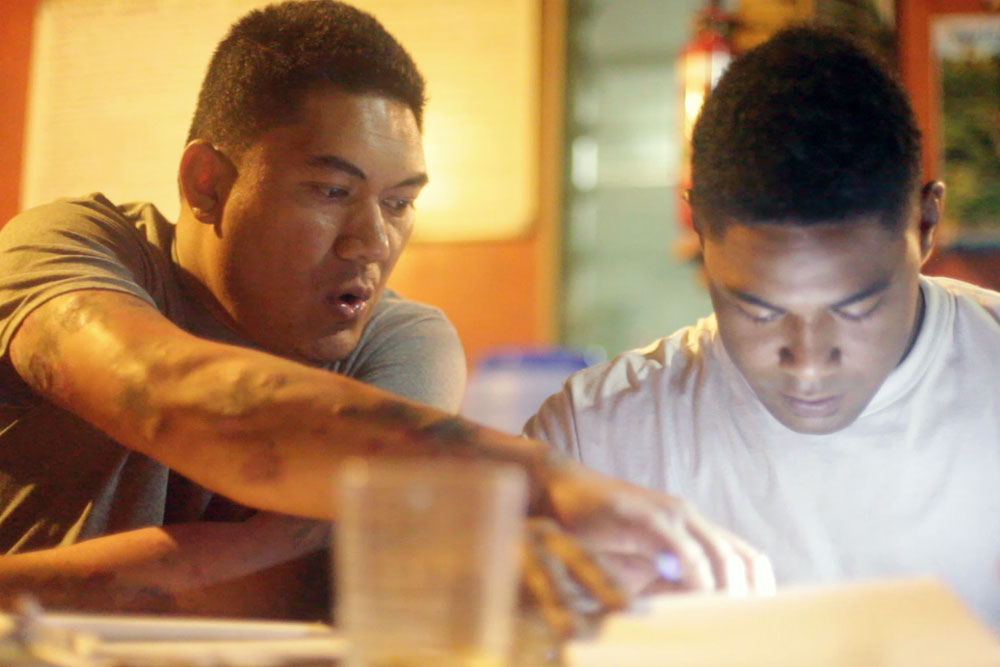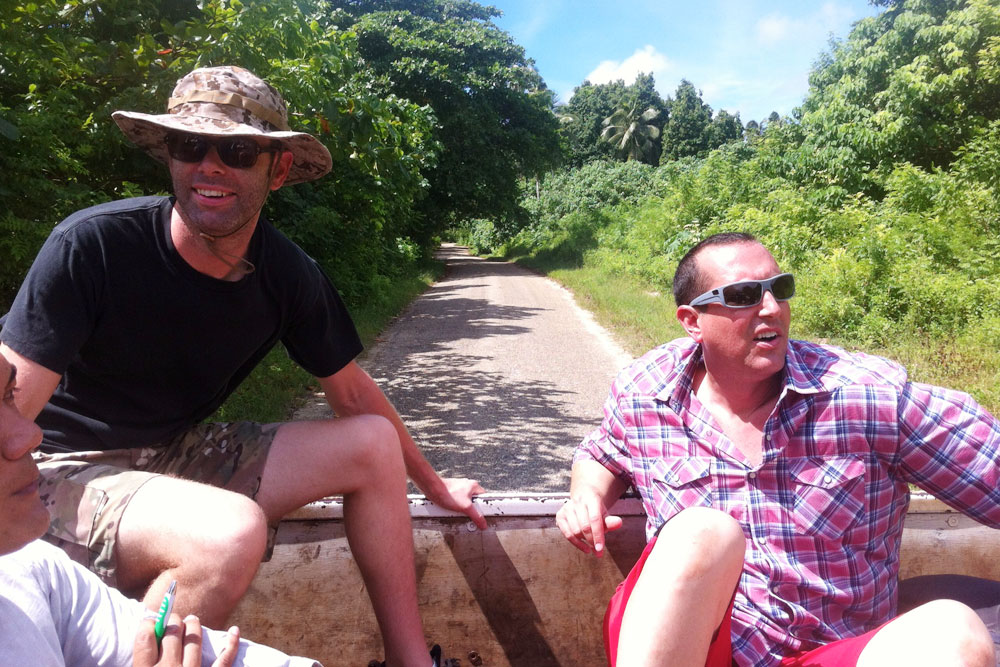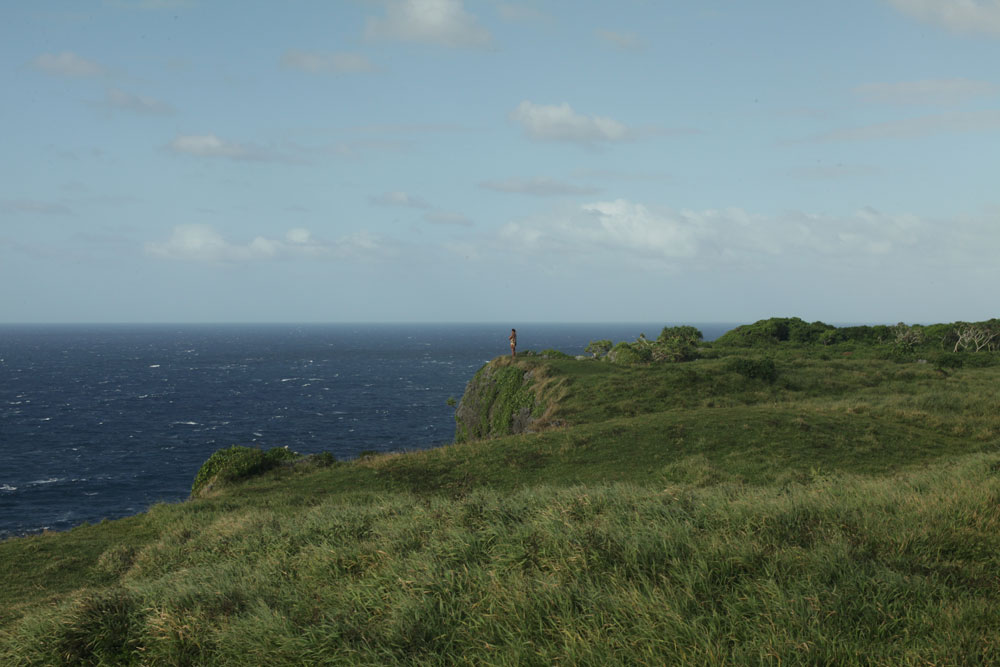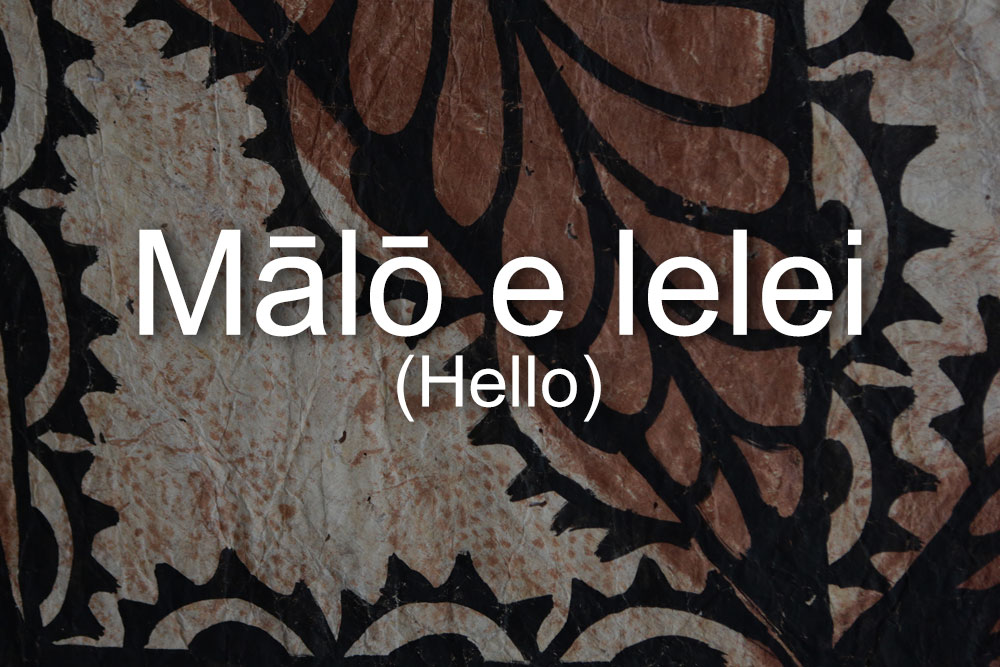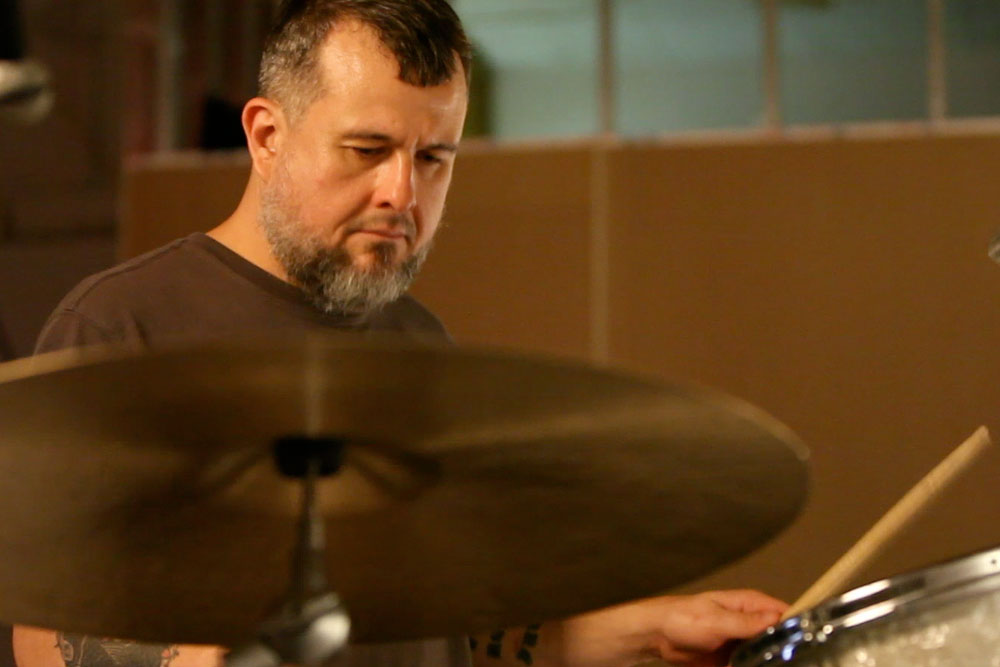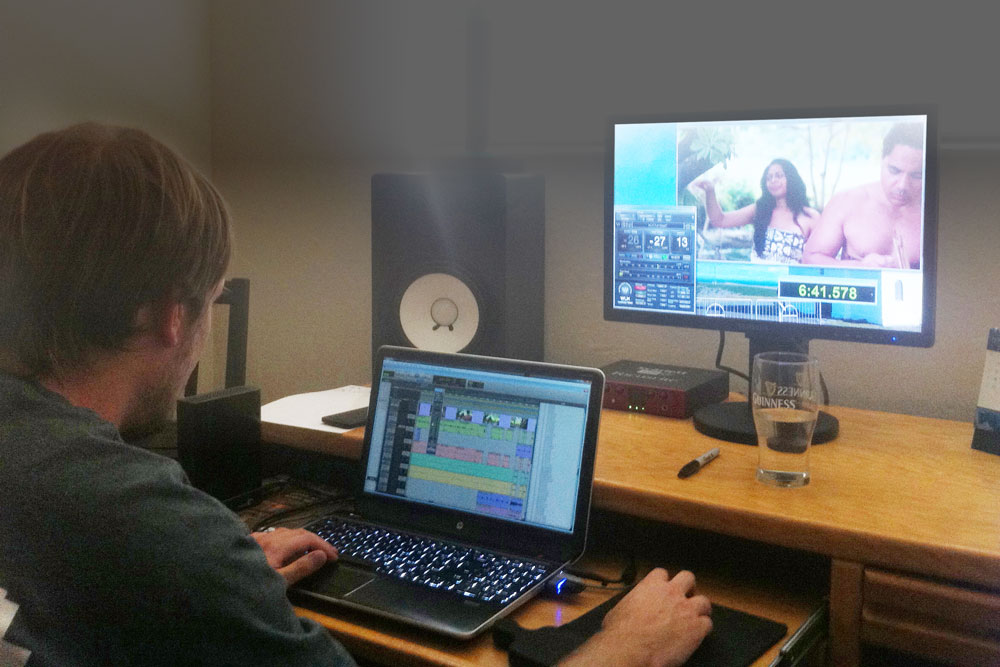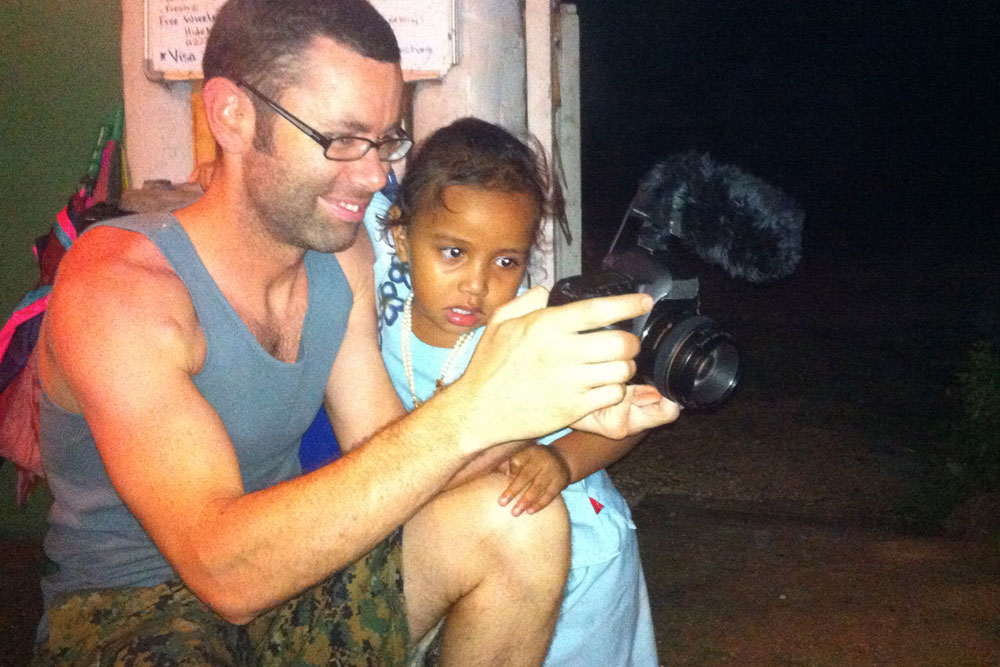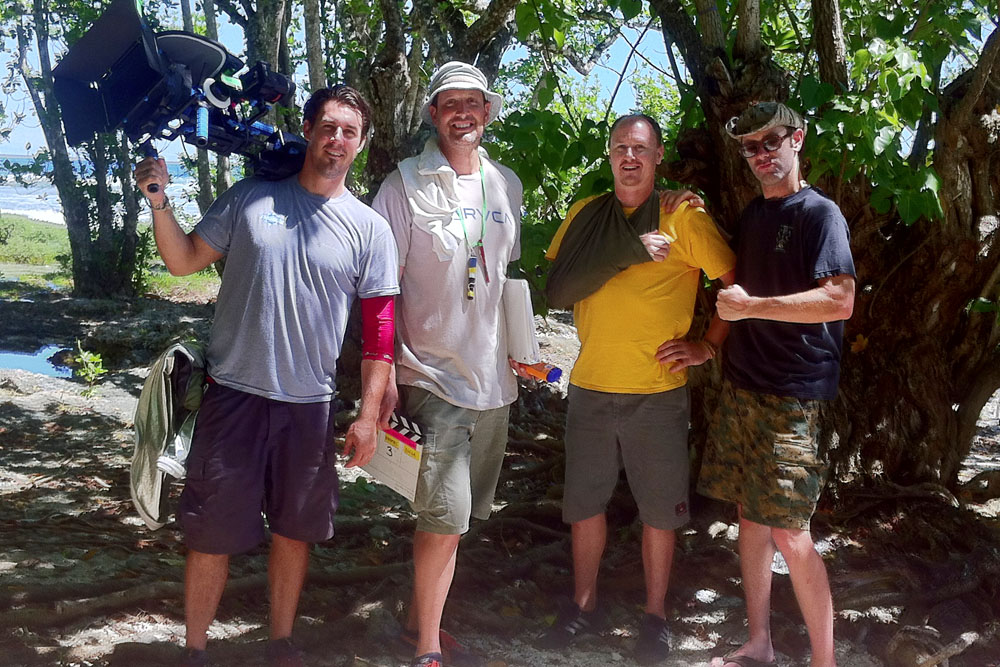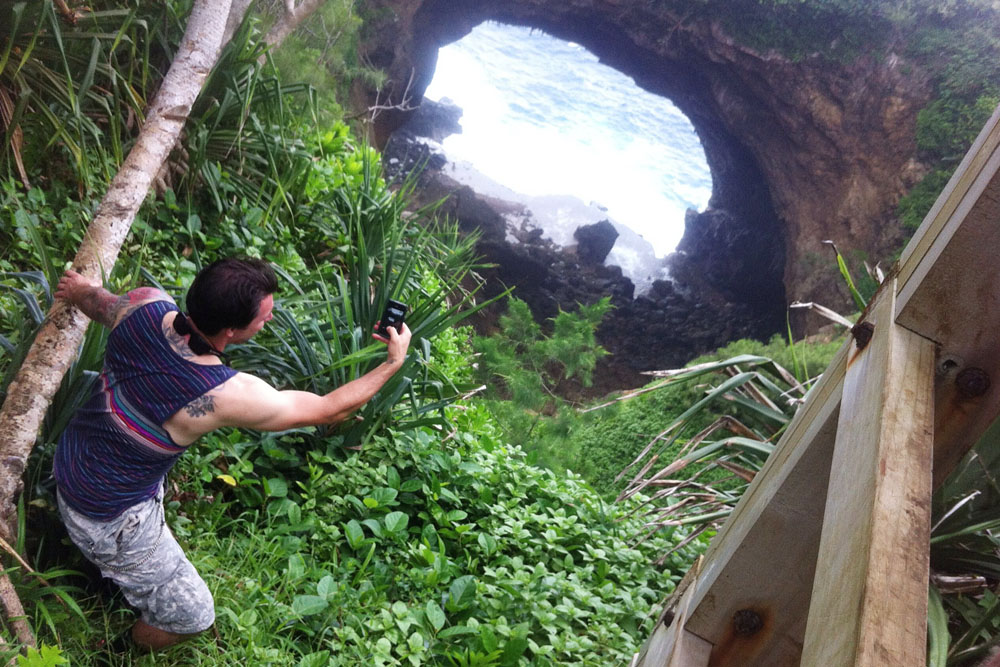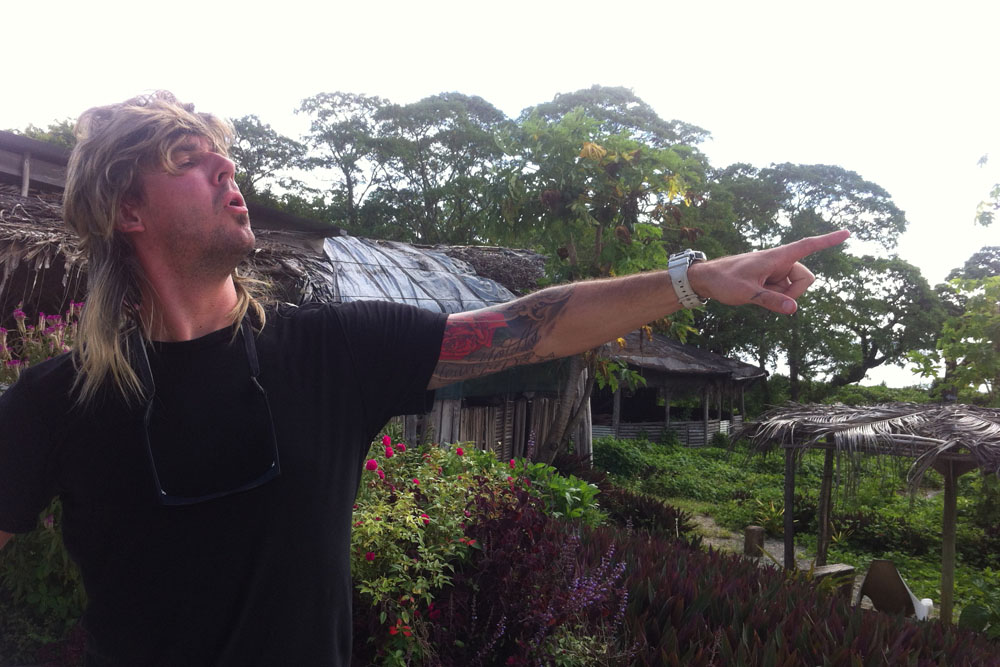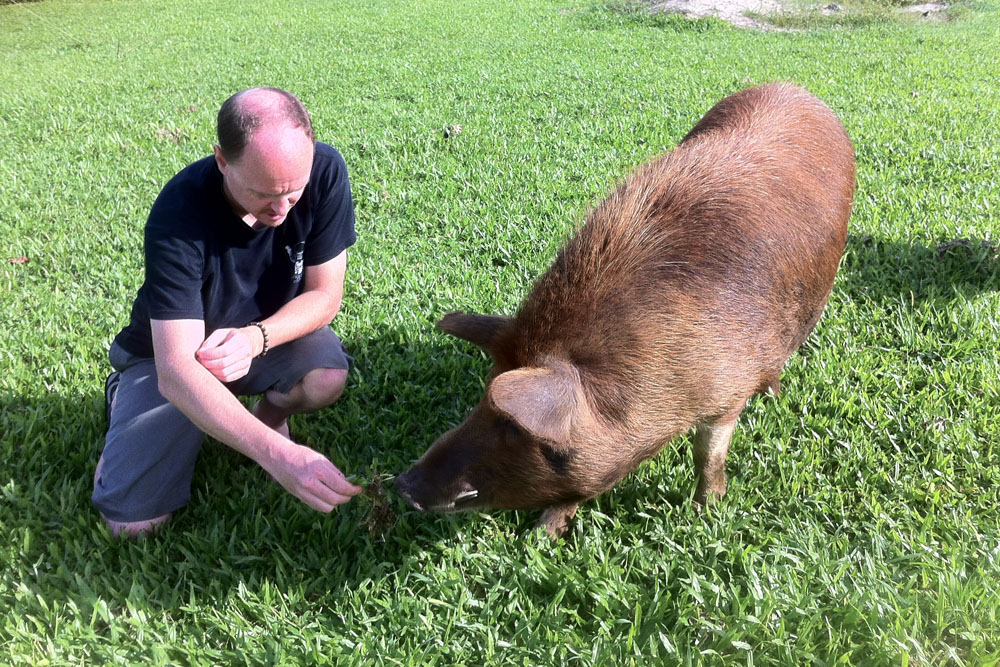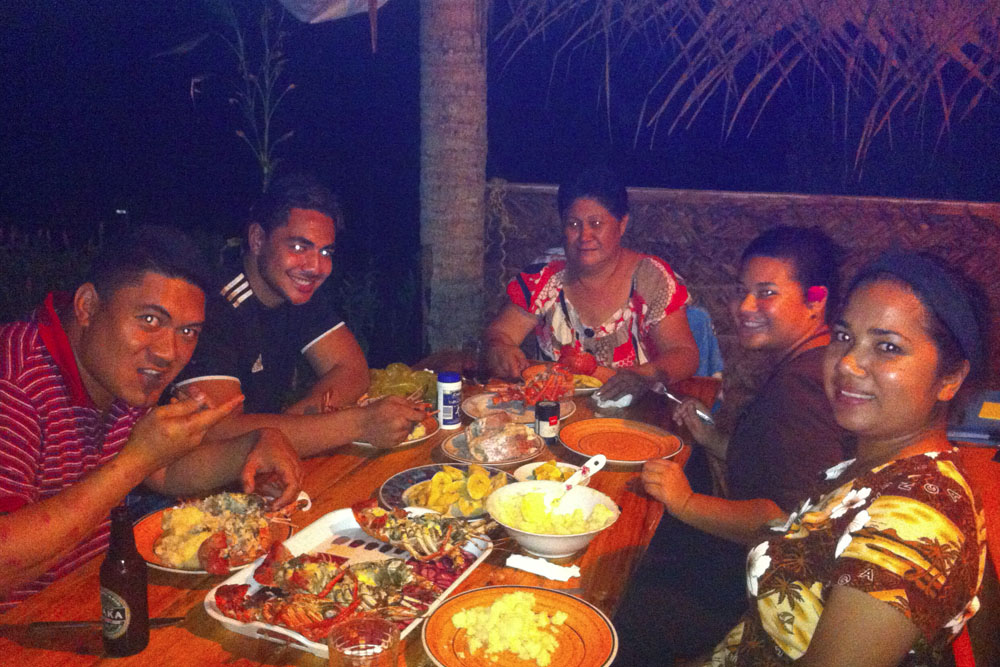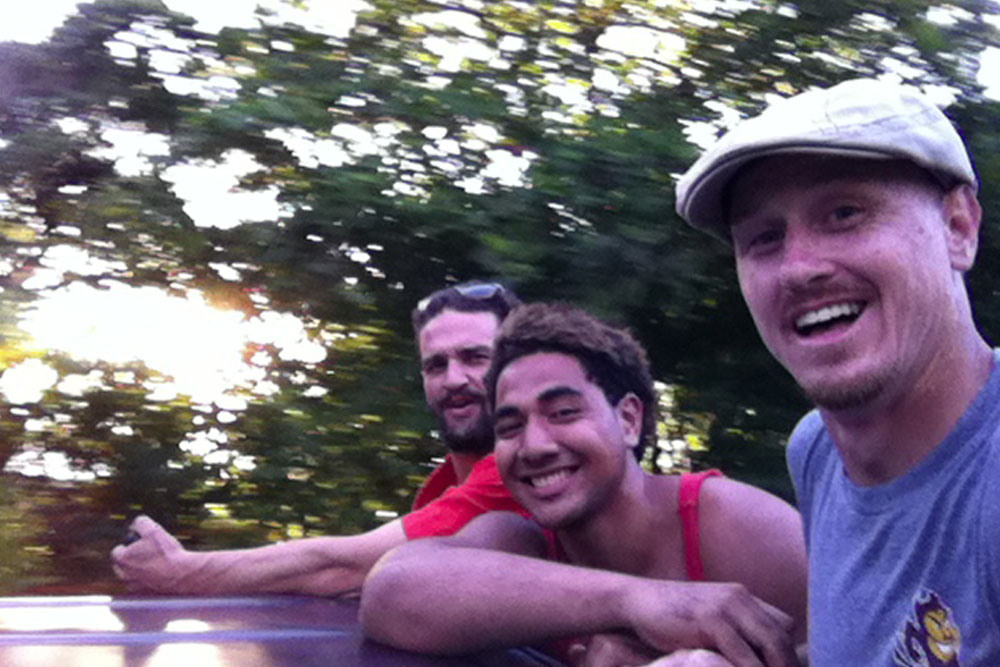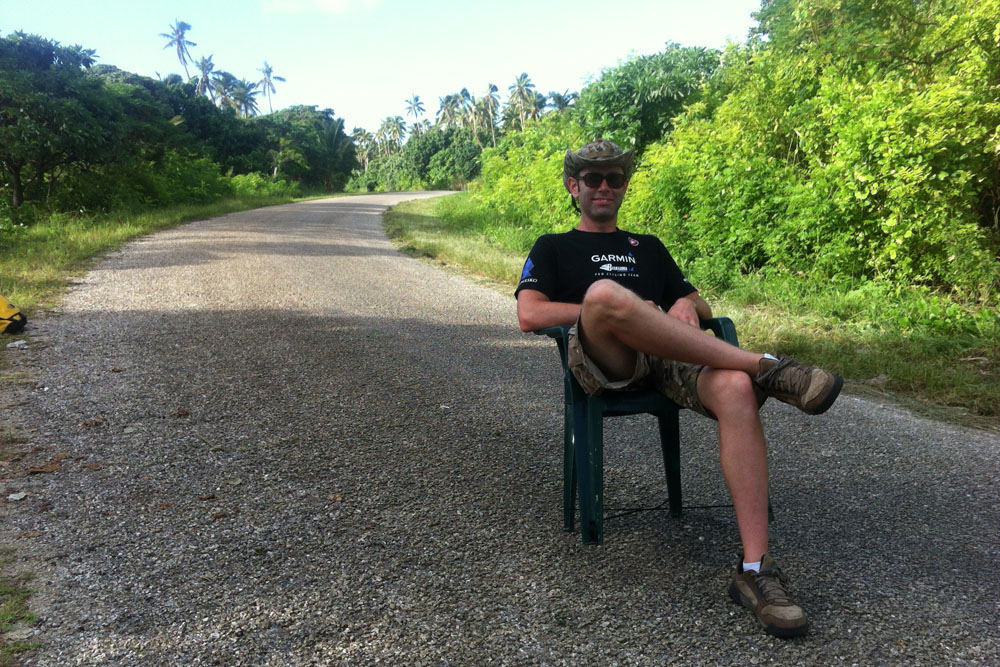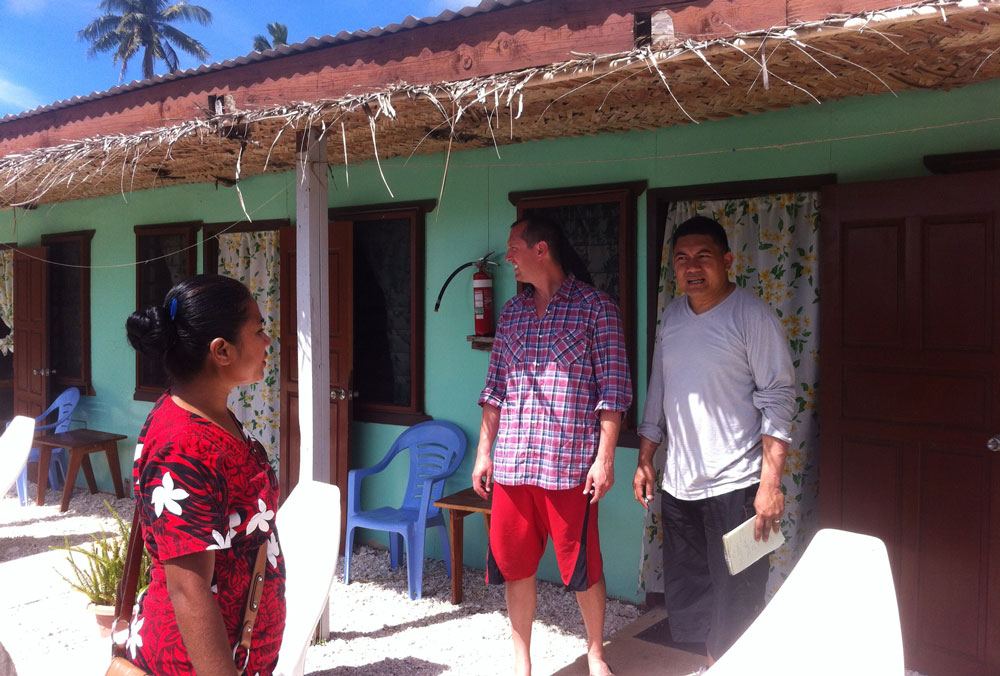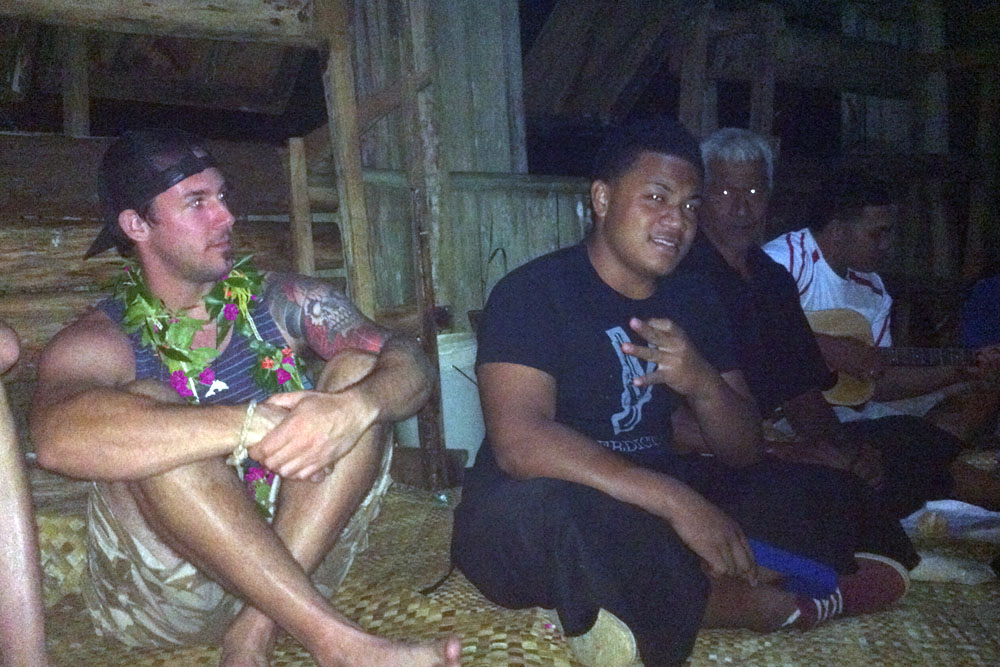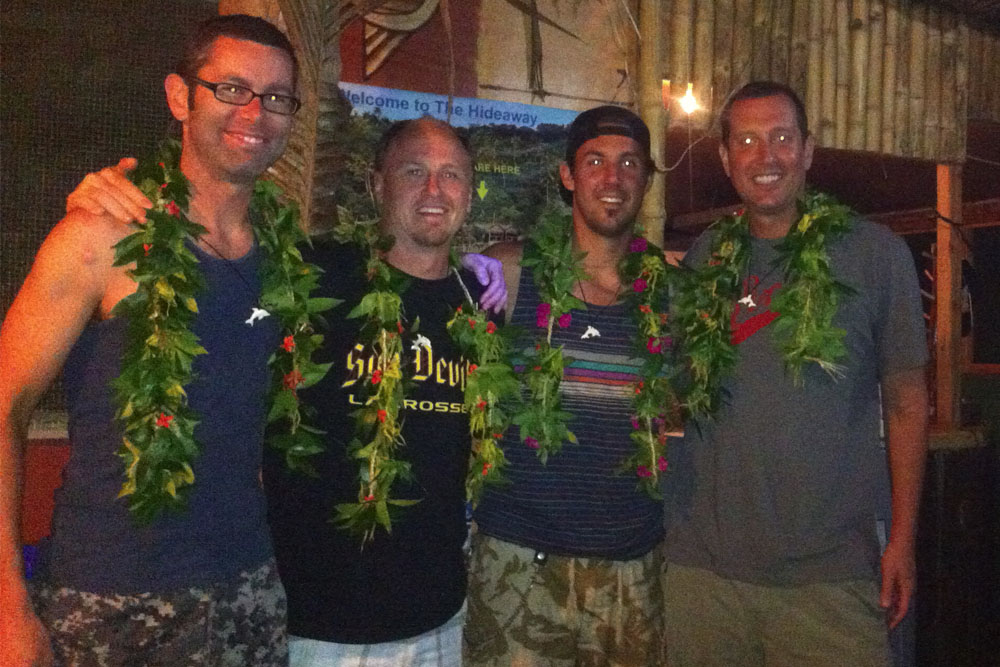ABOUT

Alex Bernstein – Director's Statement
With a small budget, a third of which I put up myself, the plan for When the Man Went South was to tell an organic story, one that I think is universal. And one that says more than just the sum of the actions of the characters who move about in it. It’s the first ever Tongan language feature film and in fact it’s the first feature film to be shot entirely in Tonga. The Kingdom of Tonga, an archipelago in the South Pacific, is still developing and infrastructure there is basic, which makes it a difficult location for filming.
Although the Narrator of the story suggests as the movie begins that this is an actual oral tradition story, it isn’t. It’s a story of fiction, though prior to sitting down to write I spent a good deal of time researching the Kingdom of Tonga and its oral tradition stories.
Making Man Went South was a special experience. When you set out to make a movie by dropping yourself in an under-developed country that’s floating somewhere in the South Pacific, a country that half the world hasn’t even heard of, you have a sense that you’re starting a unique journey. But I wasn’t prepared for the ways I would touch other people’s lives, and the ways they would touch mine. I treasure the time I spent in Tonga and the people who made it special. I’ll always be indebted to them. I hope our movie entertains you, and more than that I hope it makes the people of Tonga proud.
–Alex Bernstein
The Movie
When the Man Went South is a story about a Tongan hunter named, Flying Fox (Soane Prescott). He is instructed to set out on a journey by his village chief, Singing Whale (Loketi Tatafu), to learn about his strengths as a man. During his journey he meets two warring villages and attempts to mediate their differences. Flying Fox applies the lessons he learned on his journey when he returns to his home village to find trouble.
The Challenge
We flew over from San Francisco as a five man crew, four Palangi (white people) and one Tongan. We arranged accommodations on the tiny Island of ‘Eua, a rustic and pristine place the guide books refer to as “the forgotten island.” We had 30 days to scout, cast and shoot the 120 page script. Everything that filmmakers fear was stacked up against this production. No cast, no acting experience, a wordy script, a foreign language, extremely remote location, period wardrobe and traditional music. It was also important to arrange the shooting days to accommodate the cast. After spending the first week casting, creating wardrobe and gathering organic props (fruit) we set out on a 22 day shooting schedule. Tonga is a very religious country and Sundays were dedicated to church and food. We had to squeeze our 22 days of shooting into 23 days and exclude sundays. It was also important that the movie be shot entirely on location in the Kingdom of Tonga.
Casting
The casting process was unique to say the least. We arrived in Tonga without a cast. Rumor of the film spread quickly through the small country and folks would trickle in to our bungalows with interest in playing a part, and we’d drop whatever we were working on to pull up to a table for a reading. One day the island electrician, a man named Afasa, stopped by to fix an exposed (and live) wire in one of our rooms. Island culture is slow, social, and Afasa stuck around afterwards to chat, and he was asked to read for a part. He was great and was cast as Red Bird, one of the Western hunters. We used all four of the bungalows’ staff (Nutau, Vanila, Big Pesi and Little Pesi), who came to be like family. Our driver was cast as Singing Whale, the head chief of the Home Village.
The Team
Writer/Director Alex Bernstein approached Agent Ogden with the script in the spring of 2012. With a very small budget he convinced Zach Heffner and Derek Hanley of Verdict Digital to take on the project. Alex’s colleague, Viliami Halapua, a Tongan native, was enlisted as a producer on the film as well. Viliami has a long reach in the Kingdom of Tonga and without his connections this film would have never gotten off the ground.
The Land
“Tonga has some of the most beautiful picturesque views in the entire world. Every direction you looked was the perfect postcard shot,” said director Alex Bernstein. Tonga is basically like any humid, tropical island, except it sits in the middle of the South Pacific Ocean all by itself. This made it especially difficult for getting any replacement gear if needed, since the next closest land mass is a three hour commercial plane ride to New Zealand. ‘Eua, the island that most of the filming took place, is approximately 10 miles East of the main island of Tonga. ‘Eua is far less developed than the main island. The East side of the island is skirted with cliffs and the West side is surrounded by a jagged coral reef. Long hikes in to locations, rugged terrain and the tropical climate made it an especially difficult location. Without paved roads, we enlisted the services of Loketi (who played Singing Whale), a very skilled driver to guide us around the island. He led us on a never-to-be-forgotten, heart-stopping, off-road location scouting tour of ‘Eua. “The rugged climate of ‘Eua was extremely rough on our gear. Computer screens stopped working and the humid salty air corroded things quickly. We knew Tonga was going to be a difficult production location,” said DP Zach Heffner. “Yes, it was a very difficult location. It had a Burmuda Triangle type of effect on our gear,” said sound engineer Derek Hanley
The island was also very unforgiving and Derek’s military medical training came into play on several occasions. It landed two of our crew in the medical clinic with infections after getting cut by the coral. Within 24hrs of being cut on the wrist, long red tracks under the skin were visible starting at the wrist and traveling the length of the arm to the arm pit. Director, Alex Bernstein also was cut by the coral which resulted in giant, open sores on the skin. A trip to the medical clinic and some antibiotics cleared the infections. On another occasion, Alex, Zach and AO head out for a swim at a spot that they had swum the day before. On this day the tide was much different and it was pulling hard out to sea through a 15 foot wide break in the coral reef. Both Zach and Alex were pulled, from ankle deep water, out approximately 200 yards. Getting back in proved extremely difficult as the tide was sending large waves crashing on to the reef wall. After several failed attempts to swim to shore and treading water for approximately 20 minutes, AO borrowed a life ring from a local on the beach. In a gamble, AO threw the ring into the riptide hoping it would arrive in the same place Zach and Alex were treading water. The ring found them and they were able to use it to get back to shore. “I had about 10 more minutes of fighting the current and I was done,” said DP Zach Heffner. Both Zach’s and Alex’s hand and feet were cut from the jagged coral.
Language
The Tongan language is derived from Polynesian and it’s not a common language outside of The Kingdom of Tonga. Most of the cast did know English, which helped with trying to explain how to deliver lines and action. With the original script translated into Tongan, Viliami served as technical advisor to make sure that each line of dialogue was delivered correctly. This made Alex’s job especially hard when directing the actors. “I had to rely on Viliami for the dialog accuracy and if it was carrying the right affliction and emotion,” said director Alex Bernstein. The language posed an additional challenge in post-production. “I took a ton of notes on set and made sure that every take was slated properly. Matching up audio to the right video proved to be a very long process. I’m pretty sure I’m fluent in Tongan now,” said producer/editor Agent Ogden.
Music
With When the Man West South, a favorite pop song couldn’t just be popped in. Music in Tonga is a big part of the culture. Church choirs could be heard on any given day in the small villages of ‘Eua and sing-along songs are a nightly social event. It was important that music be used respectful and tasteful, but fitting to the time and setting of the film. It was obvious that this picture required custom music and music of a very particular style and time period. After some research into ancient Tongan music, drummer Jean-Paul Gaster of the rock band Clutch, took on the challenge of creating numerous Tongan style drum beats to be used as music beds for the film. “We are extremely lucky to have the talents of Jean-Paul on this project. Music is extremely important and I knew he would be perfect for this,” said producer Agent Ogden.
Sound
It is way easier to get away with bad video than it is bad audio. Shooting on an Island created an ocean sound bed for the entire film. It’s like the ocean is another character in the film. This made final sound difficult. ADR was out of the question and it was important for the audience to feel close to the ocean but it was important to do it without it becoming annoying. Sound man, production manager for the band Primus, Jason Mills, was looped into post-production to do a final sound mix and some sound design. Jason spent a considerable amount of time sweetening the audio for the film. There were some very troubled scenes that needed some real help. Jason was nominated for a 2014 Grammy for his work on “Sailing the Seas of Cheese”.
The People
The people are kind and warm. The culture supports a giving nature. When a meal was served, who ever was within shouting distance would sit and eat. People that we cast for parts, for little or no money, were just happy to be a part of the project and would often stick around on days that they didn’t have scenes to help with production.
The Experience
The experience was an unforgettable one. The people of ‘Eua welcomed us into their lives for 30 days. Our cast and crew took over a small bungalow called The Hideaway on ‘Eua and the staff, led by Naite, were unbelievably helpful to the success of this film. We owe a great debt of gratitude to the people of Tonga for their hospitality, generosity, keen driving skills and friendliness. They have touched our lives in ways we didn’t expect.
We hope to return to Tonga to present our film to the people of Tonga in a series of screenings across the islands, as a way to say thanks.
Fua
Alafua Topui (Fua), who played the part of Ant, showed a genuine interest in learning about the process of film making. He subsequently spent all 30 days as the sixth member of our crew. When he wasn’t in a scene, he was carrying gear or reading with the other actors. He was ready and willing each and every day of the production at the break of daylight until the sun went down. We later found out that Fua had missed those 30 days of high school to be a part of our project. He was a huge help to the production. On our last day on ‘Eua, Fua’s mother came to the Hideaway and presented us with hand made Tongan lei’s and in broken english tried to explain her gratitude for taking her son along as we made this film. It was an extremely touching moment and we realized that we had touched the lives of those on ‘Eua as they touched us.

